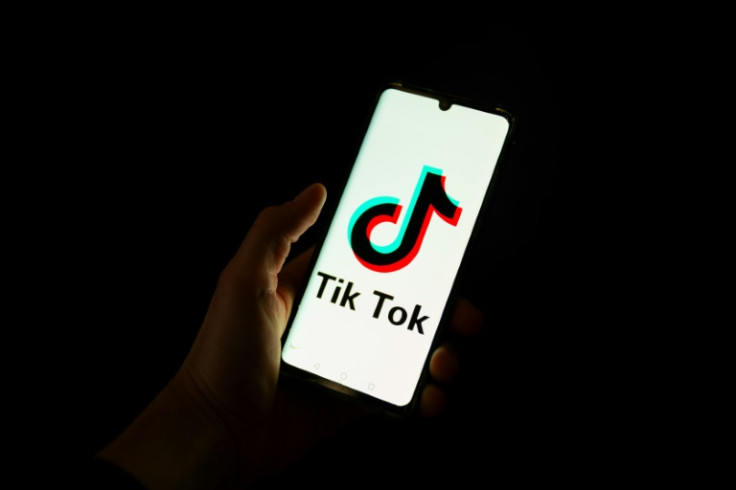
TikTok, a popular social media platform, has become a significant force in the entertainment industry, captivating millions with its diverse and engaging content. However, beyond the dance challenges and comedic skits lies a complex ecosystem that intertwines creativity, livelihoods, and societal impact. As TikTok continues to evolve, Glenn Cazenave, the owner of the platform FTTV, and a partner of TechSoup, stands at the forefront, steering his endeavors toward new horizons, including the recently launched TikTok Shop.
Speaking about the ability of TikTok Shop to change people's lives, Toni Ann Petruzzellis, General Manager of FTTV Shoppartners explains: "It has changed my life, from being a single mom, a stay-at-home mom, who lost my job during the pandemic, to now having the financial freedom to support my household. That's the difference it can make. Having that income can be a game-changer for any household."
FTTV's expansion into the TikTok Shop signifies a pivotal moment in the platform's trajectory, bridging content creation with commerce in an unprecedented manner. As Glenn aptly notes, this move aligns with his commitment to empowering creators to monetize their talents in innovative ways. Andrea Harden, General Manager of FTTV's live Creator Network, reflects on the transformative power of TikTok, "TikTok has reshaped the lives of countless individuals, providing a stage for self-expression and a pathway to prosperity. As we embark on this journey of innovation and inclusion, we remain steadfast in our belief that TikTok will continue to be a force for good, empowering dreams and reshaping destinies."
Despite the buzz of entrepreneurial endeavors and creative expression, a concern stands out: the stability of livelihoods dependent on TikTok. For many content creators, TikTok represents not only a creative outlet but mainly, the primary source of income. The notion of uncertainty surrounding the platform's future sparks apprehension among these individuals, prompting questions about contingency plans and the sustainability of their chosen career paths.
Glenn Cazenave offers a nuanced perspective on this matter, acknowledging both the genuine anxieties and the cyclical nature of TikTok's prominence in the news cycle. While concerns about potential bans and political interference are legitimate, he emphasizes the historical resilience of businesses in the face of regulatory challenges. Drawing from past instances, he highlights the rarity of shutting down a business and underscores the complexities involved in such legislative endeavors. "This happened in 2020, 2022, this year, and we'll probably hear about this rumor in 2026. It takes a lot to pass a law, especially to close down a business. It's never been done in the United States, ever," he shares.
Addressing privacy concerns, Mr. Cazenave further dispels misconceptions surrounding TikTok's data practices, pointing out that user data in the United States is stored locally in Texas, under the purview of Oracle, a reputable tech giant with extensive government contracts. Contrary to popular narratives, he asserts that the platform's data policies adhere to stringent standards, mitigating risks associated with unauthorized access or exploitation. Glenn mentions, "I can go to sleep with a YouTube video of cooking and wake up in the middle of the night being on another video of politics. The algorithm is made that way." Unlike YouTube, on TikTok you need to actually scroll; nothing comes up by accident. In China, TikTok uses facial recognition to protect children, only playing for 4 hours. This approach is different from American measures, as parents recognize the mental health effects of screen time.
Moreover, Glenn delves into the discourse surrounding screen time, acknowledging the legitimate concerns while challenging prevailing narratives. He emphasizes the evolving dynamics of technology's role in society, citing historical precedents of generational shifts in attitudes toward screen usage. Mr. Cazenave recalls, "I was born in the age when videotapes were popular, and those tapes used to be the babysitter for us, watching a movie over and over again. Today's generation gets an iPad to keep them quiet."
Another instance that Glenn states is the dynamic change from pre-pandemic to post, when parents were against homeschooling, to now, where they are more than happy to do so. "The world is intentionally divisive. The government has nothing to do with it," he states. "When I was a child, my parents told me not to sit in front of the television because it would rot my brain. Basically all children now have smartphones, and they use them constantly for important reasons and also for entertainment." From admonitions against excessive TV consumption to the ubiquity of smartphones, societal perceptions of technology-mediated experiences have evolved.
Glenn further emphasizes the importance of making genuine connections and engaging in meaningful interactions on TikTok in order to navigate the complexities of digital consumption. People often find common ground on topics such as having a loving teacher, being safe in their homes, and feeding everyone in the household. However, they may not always agree on these fundamental issues. In the Creator Network, people are allowed to discuss anything they want, without limiting their audience. Through the platform's expansive reach and diverse content landscape, individuals find common ground and forge connections transcending geographical boundaries and ideological differences.
The content creator also encourages people to be themselves and not limit their audience, allowing for a more inclusive and authentic platform for people to connect and share their thoughts. Glenn further states, "Be yourself, and you will engage people, engage people you'll have a true audience." By embracing authenticity and encouraging open dialogue, TikTok can be utilized as a catalyst for community-building and empathy cultivation.







